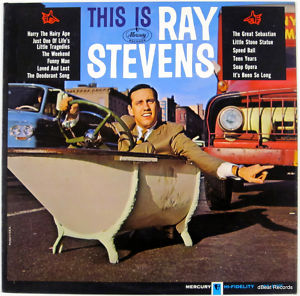
This Is Ray Stevens is the second album by Ray Stevens. It was released in 1963 by Mercury Records on the catalog numbers of MG 20828 and MG 60828. Like Stevens' previous album, 1,837 Seconds of Humor, all of the songs were written by Ray Stevens and published by Lowery Music Company, Inc. (BMI). The differences between both albums is that Stevens makes an attempt to prove his artistic versatility on this album by including six comical novelty songs and six ballads of serious music.
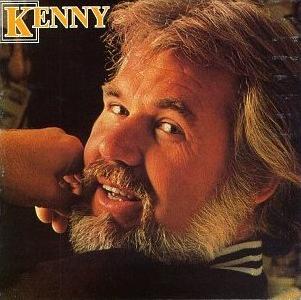
Kenny is the eighth studio album by American singer Kenny Rogers, released in 1979. It includes the singles "Coward of the County" and "You Decorated My Life."
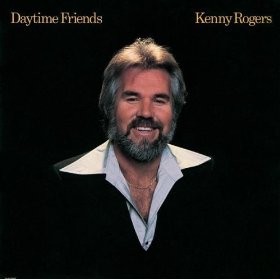
Daytime Friends is the third studio album by American singer Kenny Rogers for United Artists Records, released in 1977. It was his second major success following the break-up of The First Edition in 1976.

Walk a Mile in My Shoes: The Essential '70s Masters is a five-disc box set compilation of the recorded work of Elvis Presley during the decade of the 1970s. It was released in 1995 by RCA Records, catalog number 66670-2, following similar box sets that covered his musical output in the 1950s and both his non-soundtrack and soundtrack work of the 1960s. This set's initial long-box release included a set of collectable stamps duplicating the record jackets of the LP albums on which the tracks in the box set were originally released by RCA. It also includes a booklet with an extensive session list and discography, as well as a lengthy essay by Dave Marsh, some of it excerpted from his 1982 book on Presley. The box set was certified gold by the Recording Industry Association of America on July 15, 1999.

Elvis' Gold Records Volume 5 is the final album in the RCA Golden/Gold Records series by American singer and musician Elvis Presley, and the only volume in the series to be issued posthumously. The album was released by RCA Records in March 1984 on both LP and compact disc. The album is a compilation of hit singles released between 1968 and 1977. It is the only one of the series not to make the Billboard album chart, "bubbling under" at #207 for two weeks. It was certified Gold on 7/15/1999 by the RIAA.

Pure Connie Smith is the twenty-ninth solo studio album by American country singer Connie Smith. It was released in November 1977 via Monument Records and contained ten tracks. The album was Smith's first with the Monument label. The album was recorded in a country pop production style featuring mostly new recordings. One single was released from the album, "Coming Around". The song charted the American country songs chart in 1977.
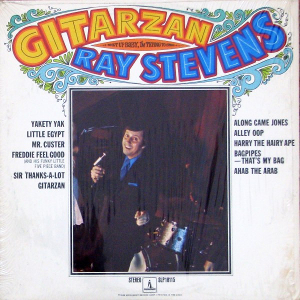
Gitarzan was Ray Stevens' fourth studio album, released in 1969, as well as his second for Monument Records. Unlike his previous album, Even Stevens, this album is completely in the genres of novelty and comedy. Although this is a true studio album, all of the songs are overdubbed with cheering and applauding of an audience to provide the feeling of a live album. Contents include three of the Coasters' hits, "Mr. Custer," and "Alley Oop." The album also contains re-recordings of his two novelty hits, "Harry the Hairy Ape" and "Ahab the Arab." "Freddie Feelgood " makes its first appearance on an album but is overdubbed with audience noises for this album.

Everything Is Beautiful was Ray Stevens' sixth studio album, released in 1970, as well as his first for Barnaby Records. After making regular appearances on The Andy Williams Show during the show's eleventh season, Stevens left Monument Records in early 1970 and signed with Barnaby . The album was rush-released to capitalize on the success of the single of the same name, which was the album's sole single. Cover versions include "Get Together," "Raindrops Keep Fallin' on My Head," John Denver's hit "Leaving on a Jet Plane," "A Time for Us," Bob Dylan's song "She Belongs to Me," and two of the Beatles' songs.
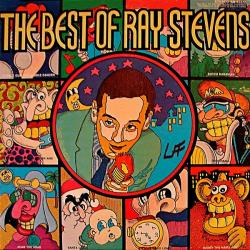
The Best of Ray Stevens is a collection of previously recorded songs by Ray Stevens. The sixth track, "Santa Claus Is Watching You," was electronically re-recorded to simulate stereo.

Boogity Boogity was Ray Stevens' eleventh studio album, released in 1974, as well as his sixth for Barnaby Records. For this album, Stevens returns to the genres of novelty and comedy. The album was released to capitalize on the success of his hit single "The Streak", which was inspired by the fad of streaking during that time period. Stevens' two songs, "Freddie Feelgood " and "Bagpipes That's My Bag," were taken from his album Gitarzan and were reissued on this album. The front of the album cover shows Stevens running in a blur, seemingly in the nude, and also contains the phrases "Woosh!!" and "Don't look Ethel!" the latter of which is part of the lyrics to the primary single of the album.

Ray Stevens' Greatest Hits is a collection of songs that Ray Stevens previously recorded for Barnaby and Monument Records from 1968 to 1971. This marks the first album appearance of Stevens' novelty hit single "Bridget the Midget ." This collection contains two more singles from Barnaby while the rest are recordings for Monument. "Gitarzan" is the album version that begins with noises of an audience. "Harry the Hairy Ape" and "Ahab the Arab" are not the original recordings but re-recordings that were made for Monument. "Mr. Businessman" is the album version.
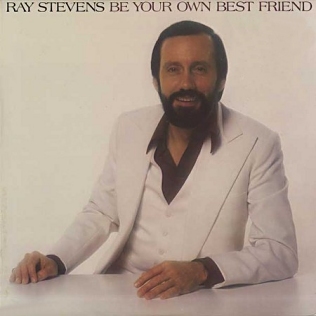
Be Your Own Best Friend was Ray Stevens' sixteenth studio album as well as his fourth and final for Warner Bros. Records, released in 1978. The third track, "You've Got the Music Inside," is a re-recording of a track that was from Stevens' 1973 album Nashville.

His All-Time Greatest Comic Hits is a 10-track collection of previously recorded songs by Ray Stevens, released in 1990 by Curb Records. One of the qualities that makes this collection identifiable is that it concentrates solely on Stevens' songs of novelty and comedy. However, the versions of certain songs on this compilation are not original recordings or the most popular versions; the version of "Gitarzan" is the album version that begins with cheering and applauding of an audience; "Ahab, the Arab" is a re-recording that Stevens made for his album Gitarzan; "Freddie Feelgood" is the album version from Gitarzan that contains audience noises.

The Very Best of Ray Stevens is a collection of 12 previously released singles that were hits for novelty/country artist, Ray Stevens; it was released in December 1975 by Barnaby Records. While this collection has more emphasis on Stevens' hits for Barnaby, it also contains three from the label of Monument Records and two from Mercury Records. The version of "Mr. Businessman" is the single release. "Gitarzan" is the album version that begins with an audience cheering and applauding. "Ahab the Arab" is the original recording that was released by Mercury.

All-Time Greatest Hits is a collection of 23 songs that were previously recorded by Ray Stevens, released in 2001. Like many collections of Stevens' music, it concentrates 99% on recordings that were made for the record labels of Monument and Barnaby. The one exception is the first track, "Sergeant Preston of the Yukon," an unsuccessful hit that was released in 1960 by the NRC label. "Sergeant Preston of the Yukon" makes its first album appearance on this collection. The rest of the selections were recorded between the years of 1966 to 1975.

Greatest Hits, Vol. 1 is a collection of ten previously released singles by Ray Stevens, released in 1987. Of the selections of songs, three were recorded for the record label of Monument Records, four for Barnaby Records, one for RCA Records, and two for MCA Records. The version of "Gitarzan" is the album version that begins with cheering and applauding of an audience. The version of "Ahab the Arab" on this compilation is not the original recording but a re-recording that Stevens made for his album Gitarzan during his career with Monument.
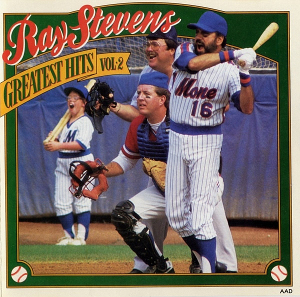
Greatest Hits, Vol. 2 is a collection of ten previously released singles by Ray Stevens, released in 1987. It is the second volume of the Greatest Hits package of Stevens' music that was released by MCA Records. Of the ten selections on this volume, the fifth track, "Mama's in the Sky With Elvis," makes its first album appearance. Additionally, this collection consists of five recordings for MCA Records, two for Warner Bros. Records, two for Monument Records and one for Mercury Records.
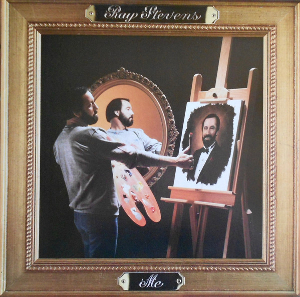
Me was Ray Stevens' twentieth studio album and his third and final for Mercury Records, released in 1983. In 1982, Stevens returned briefly to Mercury to record this album before moving to MCA Records in 1984. The front of the album cover shows Stevens portraying a painter painting a self-portrait; while the back shows the finished portrait on a table along with a second self-portrait that is sketched by pencil, a cup filled with paint brushes, the paint tray, tubes of paint, a small glass filled with water and a rose, and a lamp. Two singles were lifted from the album: "Love Will Beat Your Brains Out" and "My Dad."

20 Comedy Hits is a collection of previously recorded songs by Ray Stevens, released in 1995. The first, third, fourth and fifth tracks were included through the courtesy of Barnaby Records, for whom Stevens recorded during the early seventies. The selection of "Shriner's Convention" is a live version that was taken from the album Ray Stevens Live! "Gitarzan" is the album version that begins with audience noises, and "Ahab the Arab" is a re-recording of his 1962 hit for his album Gitarzan. The remaining tracks are selections that were recorded for Curb Records; of these selections, only two were released as singles and the rest served as album cuts. The sixth to ninth tracks were taken from the album Classic Ray Stevens, the tenth to thirteenth tracks from #1 With a Bullet, and the last seven from Lend Me Your Ears. Overall, it is not completely accurate to include the word "hits" in the title of this compilation, as it contains only seven songs that were previously released as singles and five of the seven made true impact on the charts.
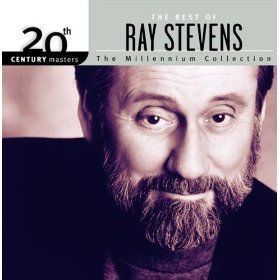
20th Century Masters – The Millennium Collection: The Best of Ray Stevens is a 12-track collection of previously recorded songs by Ray Stevens, released in 2004. It consists of the biggest hits he had from 1961 to 1987, starting with his breakthrough hit "Jeremiah Peabody's Polyunsaturated Quick-Dissolving Fast-Acting Pleasant-Tasting Green and Purple Pills" to his hit "Would Jesus Wear a Rolex". Unlike many compilations of Stevens' music, this collection contains the original recordings of "Ahab the Arab" and "Harry the Hairy Ape", which were re-recorded for Stevens' fourth studio album Gitarzan. The selections of "Freddie Feelgood", "Mr. Businessman" and "Gitarzan" are album versions, the first and third of which were featured on Gitarzan. Inside the album cover are information on the featured singles and a biographical essay written by Gene Sculatti back in December 2003. In the essay, Sculatti mistakenly says that Gitarzan is the one who shouts, "Shut up, baby! I'm tryin' to sing!" in the song "Gitarzan", as it is actually Jane who shouts this phrase.




















